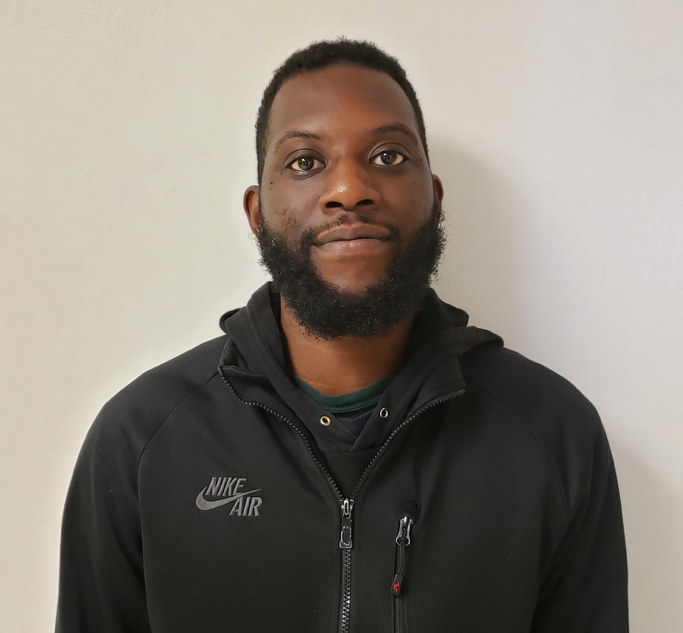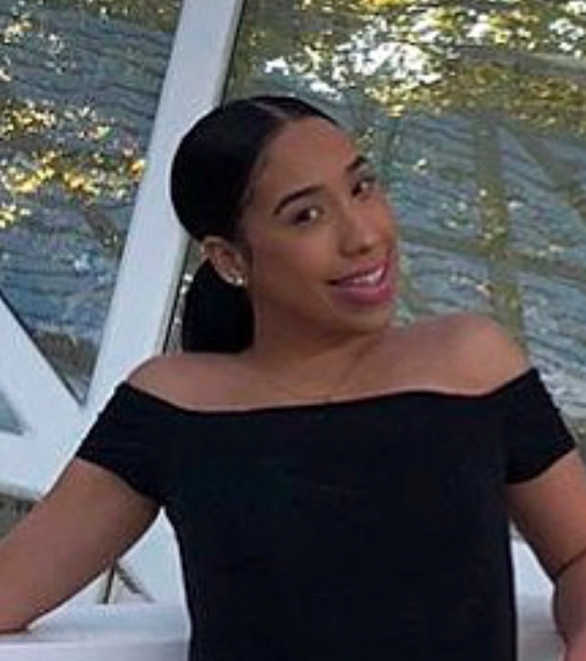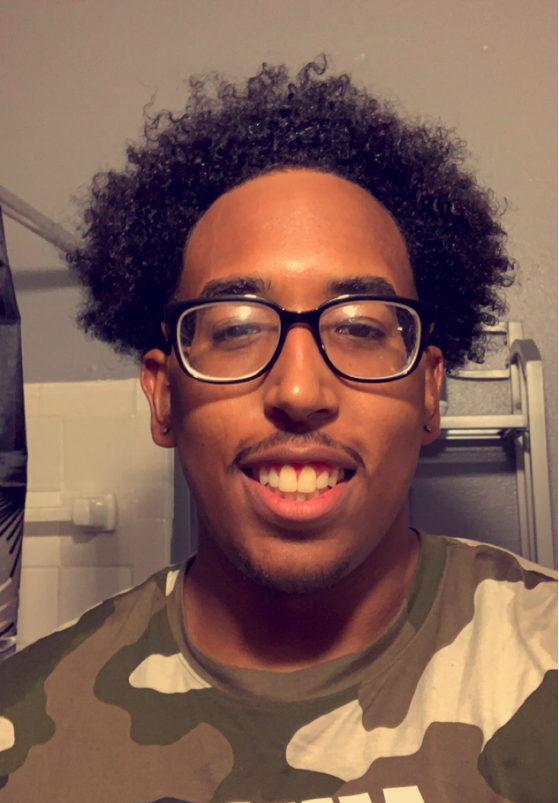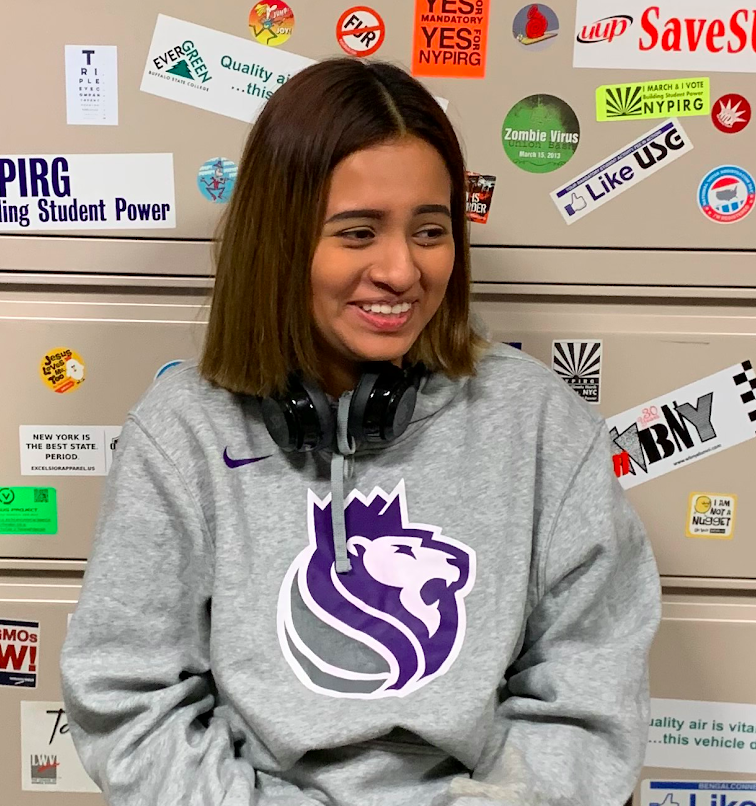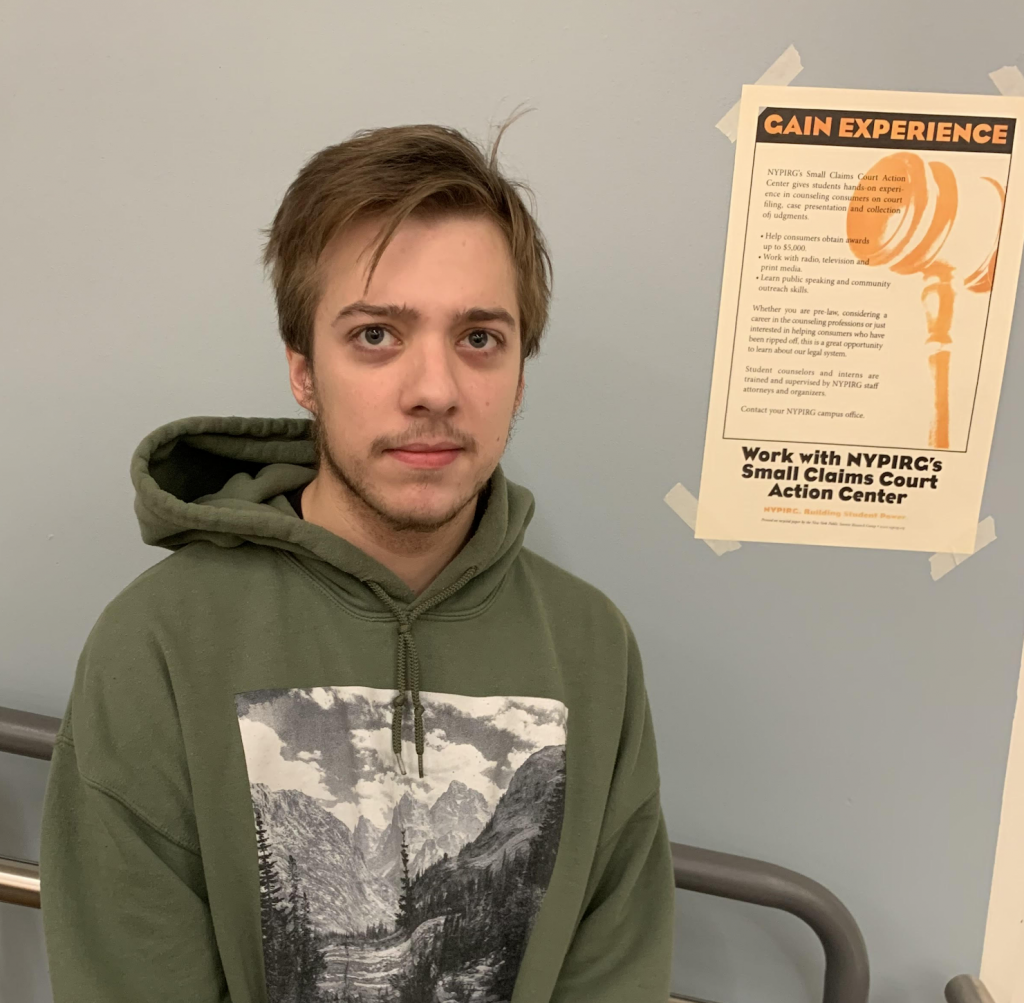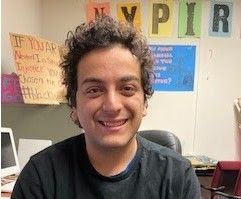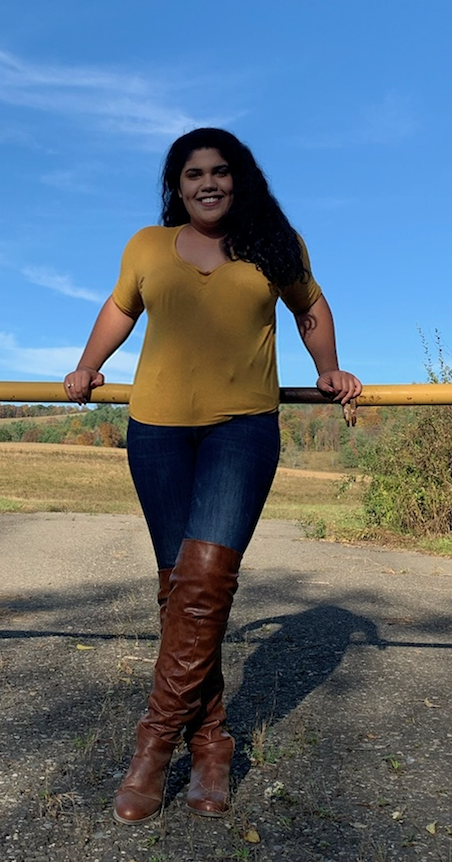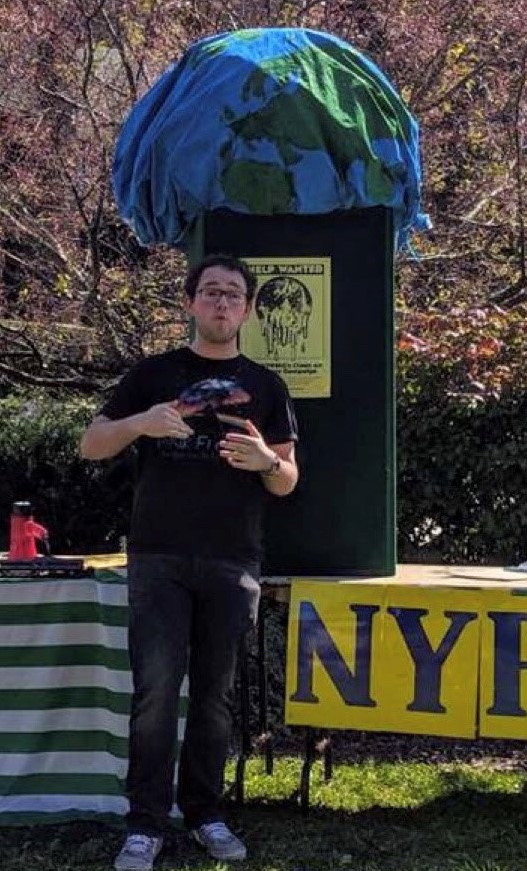Posts Tagged ‘TAP’


Credit-wise I’m a senior, but I will be here until 2021. I would like to go to law school, but I can’t afford to pay for LSAT exam, which is a couple hundred dollars. I came from the Fashion Institute of Technology graduating with a major in pattern-making technology. Then I went to John Jay where I got my Bachelors in English and minor in Law, and now I’m studying at City Tech as a Law and Paralegal major. I continued to go to school thinking that TAP would cover it because they didn’t tell me that they only cover four years of school. I pay for school through student loans now.
My parents pay for my textbooks, I receive SNAP for food, and I am concerned about graduating on time. Tuition is going up, and I can’t afford it, which means I can’t take full amounts of classes like I want to. I had to go part-time at one point because I couldn’t afford to take full-time credits.
I got sick senior year of my first bachelors, so I had to take a semester off, and then I had a miscarriage so I took another semester off, and what they don’t tell you is that they count those semesters off as part of the 4 years of TAP.
I really need the prices to come down because I’m a single parent with a 14 year-old daughter, and I’m trying to make ends meet. I’m trying to further my career, but it’s too expensive.


I am majoring in law and paralegal studies at City Tech, and it is my 5th year. I want to go to law school after college and then run for the NY Senate, and you never know where else I may end up. I feel like the route taken by most politicians is going to law school and then end up being politically active.
Financial aid covers most of my costs, but I have to pay some out of pocket— approximately $500 to $1000. Before City Tech, I attended various universities, private and public, and saw how the financial aid system worked in those schools. It’s when I got to City Tech that I saw the deficiencies in the system.
I receive TAP and Pell, and it’s not enough to cover my tuition costs, and my parents don’t have the money necessary to adequately fund my higher education. I have three other siblings that are attending college and one that is in 12th grade, looking at colleges now.
I have to go on a deferred payment plan and have been dropped from a course because I didn’t have the money to pay on time. You only have the week from the start of the semester to apply for the deferred payment plan, and if you miss that, you have to pay the amount in full. I was lucky that I called the financial office and asked if there was an alternative to paying all at once.
How do other students find out about this if one has to call to find out about these alternative options? I personally told a number of students that the deferred payment plan was an option, instead of dropping out all together and losing a semester of coursework. They were not aware of this.
Financial aid usually pays for textbooks, but I have to pay out of pocket before the money comes in, which is usually the mid-point, or at the end of the semester. My parents pay for food. If I didn’t receive financial aid, it would be nearly impossible for me to go to school. I am concerned about graduating on time, especially since they’ve said I exhausted my financial aid.
We need a fully funded CUNY, so more people who don’t currently have access to higher education are able to gain access and not be held back socially or economically. That should be the goal. Prospective college students should only have to focus on their schoolwork, instead of on how they will be able to pay for their next semester of college.


I am a senior at SUNY New Paltz majoring in communication disorders with a minor in deaf studies. After college, I intend on pursuing a career as an audiologist. I am currently employed as a cashier at the Student Union Building, and I also do catering for on-campus events.
Working on campus is the only way I can ensure that I will stay enrolled in school. I have always had to work in order to manage my expenses, especially school fees that were mandatory for me to pay out-of-pocket in order to stay in school. I have come really close to being kicked out of school because my financial aid was not enough to cover all of the costs. Thankfully, I was able to use the money I received from my campus jobs to pay off any remaining amounts.
I receive both TAP and Pell Grants, but that is not enough. I had to increase my unsubsidized loans for it to cover tuition and room and board. I could only get approval to increase my unsubsidized loan if my Parent Plus loan was denied.
I am an Educational Opportunity Student (EOP), and this program has helped me cover the majority of the costs for school. Without EOP, I’m not sure if I would still be in college. This program has been a great help for me from the beginning.


I am a junior at SUNY New Paltz, studying sociology with a concentration in criminology and a minor in communications. On campus I have been a student assistant at the Sweets N’ Treats bakery and a student chef at Peregrine Dining Hall. Working at these locations provided help with finances and helped me buy food because after a while campus food gets old. Working on campus also helped me pay off the money that I owed to the school because financial aid couldn’t cover all of my tuition and fees even though I receive the maximum amount for the TAP and Pell Grants.
I am very grateful to be a part of the Educational Opportunity Program (EOP). EOP has helped me in tons of ways. First, in terms of financial aid, they provide up to $1,400 towards financial aid. Although it does help, it still did not cover all of my financial needs for the semesters. Sometimes towards the end, the program receives leftover money from schools in order to help fund the missing amount from a student’s financial aid.
EOP has helped guide me through the criteria of college by giving me an idea of what to expect from classes, especially since it was a big transition from high school. EOP has also helped me in the process of deciding what major was best for me, and the program provided connections in order for me to succeed. Those resources are even there for me when the semester hits and anxiety and stress takes over my body.
I have been facing problems with financial aid since I started school. I was never told that the amount of financial aid you receive depends on the amount of credits you earn in a year. One semester during freshman year I took 12 credits instead of 15, and you need 30 credits to be considered a sophomore. At the beginning of my sophomore semester, I had to take about a thousand dollars out-of-pocket in order to pay off the school since my financial aid didn’t cover all of my bill. And with loans, I’m not allowed to take out a certain amount of money because I didn’t qualify to be a sophomore that year. I was too scared to take out another loan (the Parent Plus loan).
It’s really hard to pay that amount because $1,000 isn’t pocket change, especially since I come from a family that relies on an insignificant income. I had to rely on the funds that I earned from working at the on-campus job that I had. This year I was faced with taking out the Parent Plus loan, and I ended up doing it. A lot of my friends dropped out because they couldn’t pay the amount that they owed to the school.


I am a freshman at Buffalo State. I am a political science major from Queens, NY. I came to Buffalo State planning on majoring in political science because I’ve always been interested in politics and watch the news a lot, though it was comedy shows like the Daily Show that first got me into politics. I want to go to law school so I can practice public interest law, serving clients who can’t afford a lawyer. This means, of all my siblings, I will be the odd one out—the only non-accountant!
I went to the High School of Environmental Studies in Manhattan, where the emphasis was on environmental science. That got me interested in environmental studies. I decided on Buffalo State because I definitely didn’t want to stay in the city for college and wanted a change of scenery so I could focus on studying.
As a freshman, textbooks have been a concern because, even though rentals are sometimes an inexpensive options, it’s first come first served. The bookstore is almost always out of rentals when I go to buy them, which means I have to pay full price. Luckily this term, I managed to get a few rentals for $130, but many classes have multiple books that are hardly ever used. You can’t really tell what books you’re actually going to need, and it becomes an expensive guessing game.
I am not working at the moment because, even though I qualify for federal work-study, there aren’t nearly enough on-campus jobs for all the students who qualify. That means I have to look for off-campus jobs. Given Buffalo weather and not having a car, my choices are limited. It’s important to have a job because of how expensive college life is.
With TAP and all the scholarships I received, I still pay about $5000 toward tuition per semester. My family is paying these costs out of pocket, and I currently can’t register because I haven’t paid for the previous term. I can’t even look at my GPA if I wanted to transfer because everything is frozen until I pay. Courses for my major could get filled before I have time to pay up and register. Financial aid advising needs to be clearer so students know where they stand.


I grew up mostly in upstate New York. I went to Lyons High School in Lyons, NY, which is a really small school; my graduating class was about 60 people. My career goal is to become a software developer or programmer—something along those lines—and I am taking computer science classes here at Buffalo State.
I transferred to Buffalo State from Finger Lakes Community College, which was a two-year school, and Buffalo State was one of the less expensive options for four-year colleges.
Last semester was my first semester here in Buffalo. Because my family is recognized as being in need, I get financial aid of like all stripes. I get Pell Grants and would have gotten Perkins if they hadn’t done away with that. I get TAP and Excelsior. Despite all of that—which sounds like a lot, but it’s not—there’s still money that I have to pay out-of-pocket even though my family really can’t afford it.
At Finger Lakes there were three professors that got together and wrote their own book, and that helped with textbook costs there. This semester, most of my textbooks, like three of them were under $20, but one of them was $150. It was one for my information systems class, and there was another I had that was like $90, and it was just to access an online version.
If I could just focus full-time on schoolwork I would do that, but I need money to pay for textbooks and living expenses beyond what’s covered by financial aid, so I am looking for a job.


I’m a junior majoring in international studies, and I’m minoring in English and Economics. After graduation, I would love to work with a nonprofit organization and hopefully one day I will be able to work with the UN!
I
receive TAP and the Pell grant. I’m part of SEEK, which has helped me
tremendously because they have provided me with a very helpful advisor,
financial help, and an amazing environment for me to be in. I use the money
that I get as a refund after my tuition to pay transportation, food, and books.
I’m currently looking for a part-time job and an internship with a nonprofit organization, but because of my busy schedule at school, it’s very difficult. I’ve also applied for federal work-study, but because financial aid covers my tuition, my application isn’t a priority.
I would
appreciate a child care center on campus because I have many classmates that
bring their children into the classes, and although they don’t often disrupt
the class, they are a distraction to their moms because they have to pay
attention to the children instead of paying attention to the class.
Time management has been my biggest challenge at a CUNY student. I’m very concerned about graduating on time because I have changed majors. It has become very stressful because I am taking six classes next semester. If I didn’t receive financial aid, my parents would have to take out loans to help pay for tuition which would be really hard because I would have to work in order to support myself as well.
We need a fully funded CUNY because many plan on pursuing a master’s or a doctorate degree after college, and if students no longer had to worry about paying for their bachelor’s degree, they could save for furthering their educations. Also, it becomes very hard for a student to maintain a high GPA if they have to work to pay for their tuition, books, and food.


I’m majoring in political science and minoring in journalism. I’m part of the 1% of students that receive the Excelsior scholarship, so I have to complete 30 credits per year, which makes college more stressful by increasing my workload. I also have to stay in New York four years after my graduation, so I plan to attend graduate school. I also am a recipient of the Pell Grant and the TAP award.
I work on the weekends and have to pay for food, transportation, and books myself because I don’t receive SNAP, and I am not part of any opportunity programs. If I didn’t receive any financial aid, I would probably be in debt. I think that CUNY should be fully funded to help to support the growing student body that overwhelms public colleges because most people find it nearly impossible to attend private colleges.
More aspects of CUNY, such as maintenance of the elevators of CCNY, should also be funded. I would also appreciate a child care center on campus to provide support for students that are also parents.


I’m a junior at SUNY Cortland studying Teaching English as a
Second Language. After graduation, I plan on becoming a teacher.
I pay for school in a few ways. I’ve taken out student loans and received grants. I work to help cover the costs on top of that. I receive both TAP and the Pell Grant which is about $5,000 per year between the two. I also work at ASC (auxiliary services) about seven hours a week to help pay for food and gas so that I can go to my observations for my education class.
If I didn’t receive financial aid, I wouldn’t be in school because there is just no way I could afford it. We need a fully funded SUNY so that everyone can get an education no matter their financial situation. We all have a right to an education and a better future.


I’m currently a sophomore at SUNY Cortland majoring in Political
Science. At this point, my plan is to attend graduate school after graduation.
As far as paying for school, I rely on taking out loans, using the
financial aid I receive, and having my parents pay some tuition out-of-pocket.
I receive both TAP and the Pell Grant, which allow me to pay for school each
semester. I don’t work, so I need financial aid to pay my tuition and to pay
for textbooks.
If I didn’t receive financial aid, in all likelihood, I would not
be able to attend college. So many people struggle to pay for college, which is
a large part of why SUNY needs to be fully funded. If SUNY was better funded,
those who can’t afford college would be able to go, and middle-class families
that have more than one child would have the ability to send all of their
children to school.
The biggest challenge that I have faced as a SUNY student is
dealing with the stress of not knowing how my parents will pay for my sister to
go to college in two years and worrying about paying off my student debt.
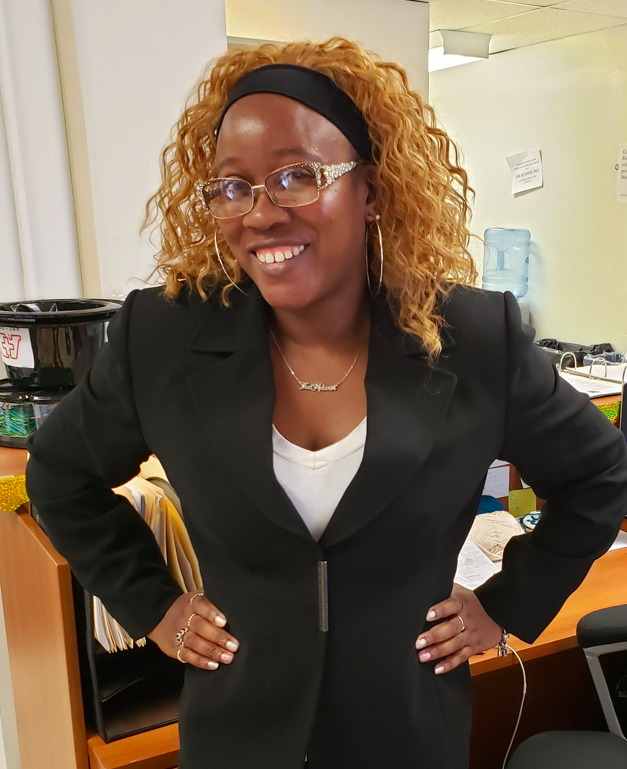

 MENU
MENU